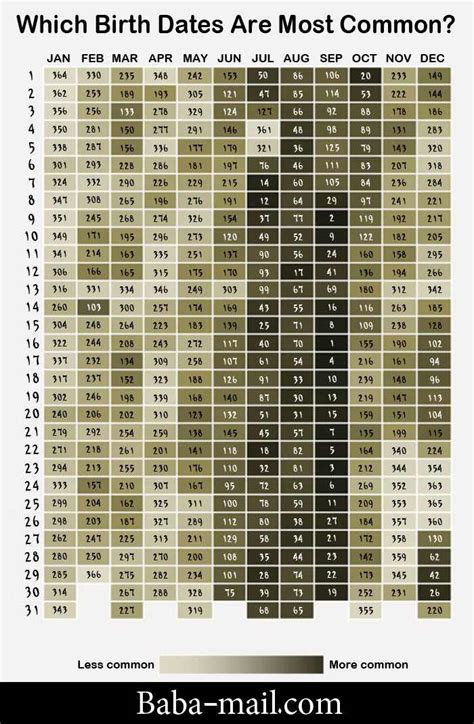Imagine you’re attending a party and you meet someone who shares your birthday. What are the chances? Do you feel like you have more in common with people born on other dates? Or do you believe that individuals born on rare dates possess a unique energy? Whether you’re curious or just looking for a bit of trivia, taking a “How Rare Is My Birthday?” test can be an enlightening experience.

Understanding Birthday Probability
Every day, approximately 232,000 babies are born worldwide. This means that there are about 85,000 different birthdays possible. However, the probability of two randomly selected people sharing the same birthday is surprisingly high. According to the Birthday Problem, a group of just 23 people has a 50% chance of having at least two individuals with the same birthday.
Factors Affecting Birthday Rarity
Several factors can influence the rarity of a birthday, including population size, cultural norms, and historical events.
-
Population Size: The more people there are, the more likely it is that someone will share your birthday. For example, in countries with larger populations, such as India or China, the likelihood of encountering someone with the same birthday is higher than in smaller countries.
-
Cultural Norms: Certain cultures have seasonal birth patterns, which can affect the rarity of birthdays within those cultures. For instance, in countries with a strong Christmas or Easter tradition, there tend to be more births around those holidays.
-
Historical Events: Historically significant events, such as wars or natural disasters, can also impact birth rates, affecting the rarity of birthdays in subsequent years.
Rare and Common Birthdays
According to data from the National Center for Health Statistics, certain birthdays are more common than others. Here are some of the most and least common birthdays in the United States:
| Most Common Birthdays | Least Common Birthdays |
|---|---|
| September 9th | February 29th |
| September 19th | December 31st |
| September 28th | November 1st |
| August 13th | November 2nd |
| August 23rd | November 3rd |
Benefits of Taking a “How Rare Is My Birthday?” Test
While the “How Rare Is My Birthday?” test may not reveal any groundbreaking information, it can provide some interesting insights and conversation starters. Here are a few potential benefits:
- Self-Discovery: Understanding the rarity of your birthday can help you appreciate your unique place in the world.
- Social Bonding: Sharing your birthday with someone else can create an instant connection and spark conversations.
- Entertainment: Quizzing friends and family about their birthdays and comparing results can be a fun and engaging activity.
- Data Analysis: Researchers can use birthday rarity data to study population trends, birth patterns, and other statistical phenomena.
Generating Ideas for New Applications
The concept of birthday rarity can be applied to various fields, such as:
- Marketing: Companies could tailor marketing campaigns based on birthday frequency, offering personalized promotions or rewards.
- Event Planning: Event organizers could use birthday rarity data to predict attendance patterns and optimize scheduling for gatherings.
- Healthcare: Researchers could investigate the relationship between birthdates and certain health outcomes, leading to more personalized treatments.
- Education: Teachers could use birthday rarity to teach concepts such as probability and statistics in a hands-on way.
Tips and Tricks for Testing Birthday Rarity
- Use Online Calculators: Several websites offer free “How Rare Is My Birthday?” calculators where you can input your birthdate and receive an estimated rarity percentage.
- Consider Your Population: Remember to factor in your country’s population size when interpreting your results.
- Compare Within Social Circles: Ask friends and family members for their birthdays and compare the rarity within your group.
- Beware of Biases: Remember that birthday rarity is based on probability, so small sample sizes or specific cultural norms could influence the results.
Step-by-Step Approach to Calculating Birthday Rarity
- Determine Your Birthdate: Identify the day, month, and year of your birth.
- Find a Calculator: Use an online calculator or create your own spreadsheet.
- Input Your Birthdate: Enter your birthdate into the calculator.
- Calculate Rarity: The calculator will estimate the probability of someone sharing your exact birthday.
- Analyze Results: Interpret the rarity percentage and consider the factors that may have influenced it.
